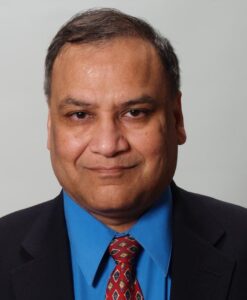I am delighted to open the second part of the Healthcare Inequalities and Social Justice blog series. My editorial focus will be on Global Health. In this series BMJ Leader and I will bring to you yet another set of powerful blogs, however this time from around the world, to share our collective vision. Professor Rahul Jindal from the US joins me in opening this series, our discussions from a social justice lens – after multiple rounds, have centred on a collective vision, ending perhaps ultimately on a purpose which embraces the notion that, of all the virtues – Justice is to elevate the dignity and sovereignty of the human person and it is distinct from the virtue of charity!1 This relates to the very heart of Professor Jindal’s work too, we will feature his blog on the tremendous work undertaken and to be highlighted in this very series.
We believe justice does deal with the substance and rules for guiding ordinary, everyday human interactions, and all our actions. Therefore justice is a set of universal principles that bench mark what is right and what is wrong, despite what culture and society we reside in.2 According to the Centre for economic and social justice, ‘justice’ is one of the four fundamental virtues of classical moral philosophy, alongside courage, temperance – a form of self-control and prudence, which is efficiency.2 They further suggest that faith, hope and charity are considered to be the three ‘religious’ virtues. If one is to develop fully our ‘human’ potentials – virtues or ‘good habits’ help us to develop fully those precise human potentials, and import us to serve perhaps our own self-interests as well as work in harmony with others for ‘their’ common good.2
Charity is perhaps given a lower status and stigmatised in certain cultures, yet it originates from the Latin word caritas, representing divine love, which is known to be the ‘soul’ of justice. Though, justice supplies the material foundation for charity. Charity nevertheless deals with the ‘spirit’ of human interactions and with those extraordinary events where exact application of the rules is not applicable or adequate.1 Then in a world full of angst and modern Warfare – Charity offers a means during times of hardship and induces us to give from our own bleeding heart to relieve the pain and suffering of a person in ‘true hardship.’ The uppermost purpose of charity is the same as the chief objective of justice, which is to upraise all persons to where they do not need charity but can offer charity – to convert as the charitable her/himself. Remarkably, there is sometimes a short oversight, as true charity requires philanthropic giving, that is to give without any expectation of return, nevertheless it is not a replacement for justice.2
Health disparities are systematic, reasonably preventable health variations unfavourably impacting socially disadvantaged groups. Reflecting social disadvantage, but causation need not be proven.1 This classification, grounded in moral and ethical human rights philosophies, emphases a subdivision of health variances reflecting social injustice, uniquely placed health disparities from additional health variances similarly necessitating determined consideration, from general health variances.1 Therefore we contend that in the Global Health arena social justice encompasses economic justice.2 Economic justice concerns contribution, out-take, and feedback, which restores harmony or equilibrium between the two.1 Louis Kelso and Mortimer Adler, in the scheme of economic justice defined three crucial and symbiotic moralities: a) Participative Justice – the contribution value, b) Distributive Justice – the out-take value, and c) Social Justice the feedback and remedial value. The Centre for Economic and Social Justice likens this to the following analogy “Like the legs of a three-legged stool, if any of these principles is weakened or missing, the system of economic justice will collapse.”2 despite knowing, we still witness on a regular basis in Global Health these very variances. Yet again, we shall remind ourselves of the very first essence of social justice, it is that virtue which guides us in creating those organised human interactions, we call institutions (see the opening series blogs). Sequentially, shared institutions, when equally organised, can offer access to what is good, both individually and in our organisations with others. Social justice does impose on each of us – a own accountability to join forces with others, at every level of our Common Good in which we join, from conception, strategy and to eventually and persistently improve our institutions as instruments for own and collective development.
The first blog to open part two of this series is by Prof. Raywat Deonandan, Associate Professor, Faculty of Health Sciences, University of Ottawa, this piece is entitled – Generative Artificial Intelligence: A Fourth Global Digital Divide?
References
- Braveman, P. A. et al. Health disparities and health equity: The issue is justice. Am. J. Public Health 101, (2011).
- Center for Economic and Social Justice. Defining Economic Justice and Social Justice. http://www.cesj.org/learn/definitions/defining-economic-justice-and-social-justice/ (2014).
Authors

Dr Nagina Khan, BHSc, PGCert, Ph.D.
Nagina is a Senior Clinical Research Fellow in Primary Care, Centre for Health Services Studies (CHSS), Division of Law, Society and Social Justice, School of Social Policy, Sociology & Social Research, University of Kent. Nagina’s current research supports the Integrated Care Systems (ICS) to capitalise on emerging existing networks in its research duty and mitigate the current risk of future research being conducted in silos and without focus on priorities and underserved populations. This work will diversify the public voice listened to and strengthen ICS strategic links within local research infrastructure to support evidence-based practice, apply solutions, and spread innovation.
Nagina is also a visiting researcher, CHiMES, Department of Psychiatry, Oxford University. Nagina’s research has focused on social justice, equality, and fairness, in culturally appropriate mental health care and complex interventions. She carried out the staff data analysis of Experience based investigation and Co-design of approaches to Prevent and reduce Mental Health Act Use: (CO-PACT) study. Nagina has worked as a Scientist at Centre for Addiction and Mental Health (CAMH) on the mixed method study focused on the Cultural adaptation of CBT for Canadians of South Asian Origin. During the Covid-19 Pandemic, Nagina worked with Touro University Nevada, Las Vegas, on Professionalism in undergraduate medical Education and with the Royal College of Psychiatrists on Social Justice, Differential Attainment and Microaggressions in healthcare and medical education. She was a Medical Research Council (MRC) Research Training Fellow, her research was centred on complex interventions for people with depression, University of Manchester. Her post-doctoral studies were undertaken at the NIHR School for Primary Care Research, UK focusing on First episode Psychosis in Young People Using Early Intervention services. Other research interests include Incentivisation Schemes (P4P) in healthcare for HICs and LMICs and Global Health. Nagina is the Associate Editor at BMJ Mental Health, she is also the BMJ Leader Editorial Fellow and is an Editorial Board Member of the BioMed Central Medical Education Journal.
Email: N.Khan-523@kent.ac.uk

Professor Rahul M. Jindal, MD, PhD, MBA, MSc [Oxford], FRCS [Ed], FACS
Rahul M. Jindal is a Professor of Surgery and Global Health at the Uniformed Services University, Bethesda, and the Indian Institute of Public Health, Gandhinagar, India. He is also a Commissioner, of the Office of Human Rights, Montgomery County, Maryland. Jindal has authored 3 books and over 200 peer-reviewed articles. He was awarded the Fulbright-Nehru Distinguished Chair to India (2016, 2022 & 2024), the Ellis Island Medal of Honor, and the Carnegie Great Immigrant Awards.
Declaration of interests
I have read and understood the BMJ Group policy on declaration of interests and declare the following interests: None